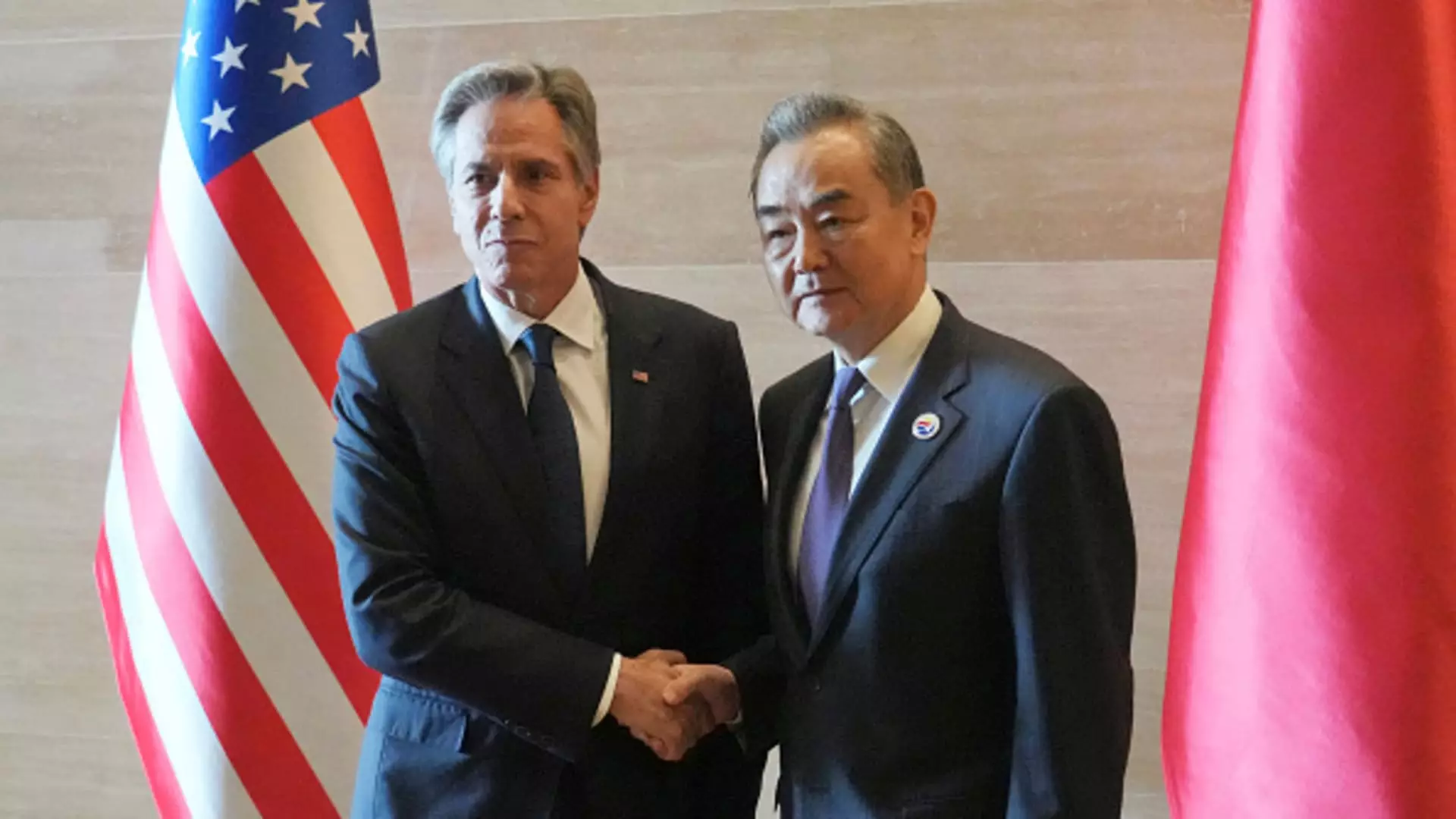U.S. Secretary of State Antony Blinken made a bold statement regarding Beijing’s actions in the South China Sea during a recent summit. He criticized China for its “escalating and unlawful actions” against U.S. ally, the Philippines. Blinken also acknowledged the successful completion of a resupply mission by the Philippines to troops at a disputed shoal, despite China’s previous hostility. This clear stance against China’s aggressive behavior marks a significant shift in U.S. foreign policy towards the region.
Furthermore, Blinken’s discussion with Chinese Foreign Minister Wang Yi highlighted ongoing concerns about Taiwan and Beijing’s support for Russia’s defense industry. Despite attempts to improve military-to-military ties, Wang expressed dissatisfaction with the perceived containment and suppression of China by the U.S. This exchange reveals the underlying tension between the two superpowers and the challenges they face in maintaining stable relations.
Russian Foreign Minister Sergei Lavrov also weighed in on the situation, criticizing the U.S. plan for a nuclear deterrence with South Korea. Lavrov expressed concerns about the regional security implications of this strategy, accusing the U.S. of inflaming tensions and militarizing the Korean peninsula. His remarks underscore the complex web of alliances and rivalries that shape global diplomatic relations.
The summit also addressed various regional conflicts, including the situation in Gaza and Ukraine, as well as North Korea’s nuclear ambitions. Calls for a ceasefire in Gaza and the need for sustainable peace were echoed by foreign ministers, highlighting the urgent humanitarian crises that continue to unfold in these regions. The international community’s response to these conflicts will be critical in shaping future diplomatic efforts.
In Myanmar, the military’s intensified crackdown on ethnic minority rebel groups has drawn condemnation from foreign ministers, including Australia’s Penny Wong. The ongoing civil war has displaced millions of people and resulted in widespread violence and human rights abuses. ASEAN’s peace plan has faced significant challenges in promoting dialogue and de-escalating the conflict, emphasizing the complexities of resolving internal disputes within member states.
The recent summit highlighted the intricate dynamics of global diplomacy and the diverse challenges faced by key players on the international stage. From tensions in the South China Sea to conflicts in Gaza and Myanmar, the need for dialogue, cooperation, and respect for international law remains paramount. As countries navigate these complex issues, the outcomes of diplomatic engagements will shape the future of regional stability and security.


Leave a Reply